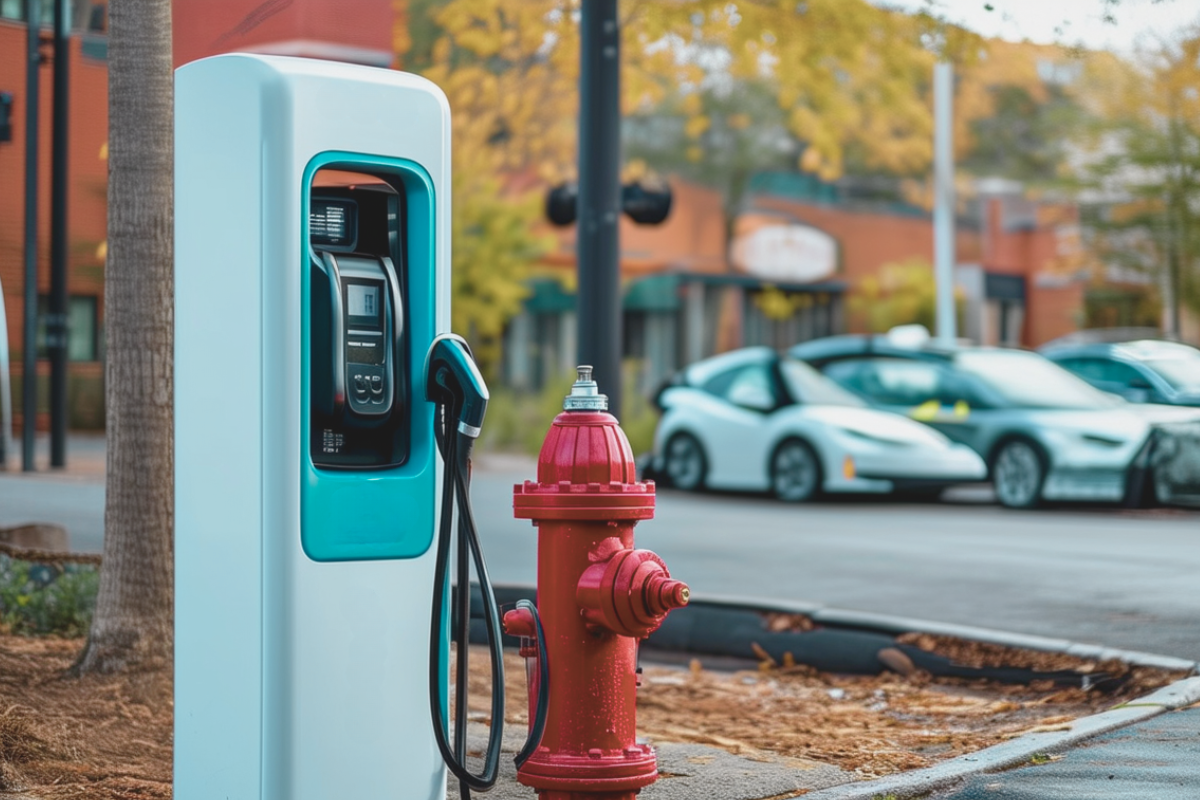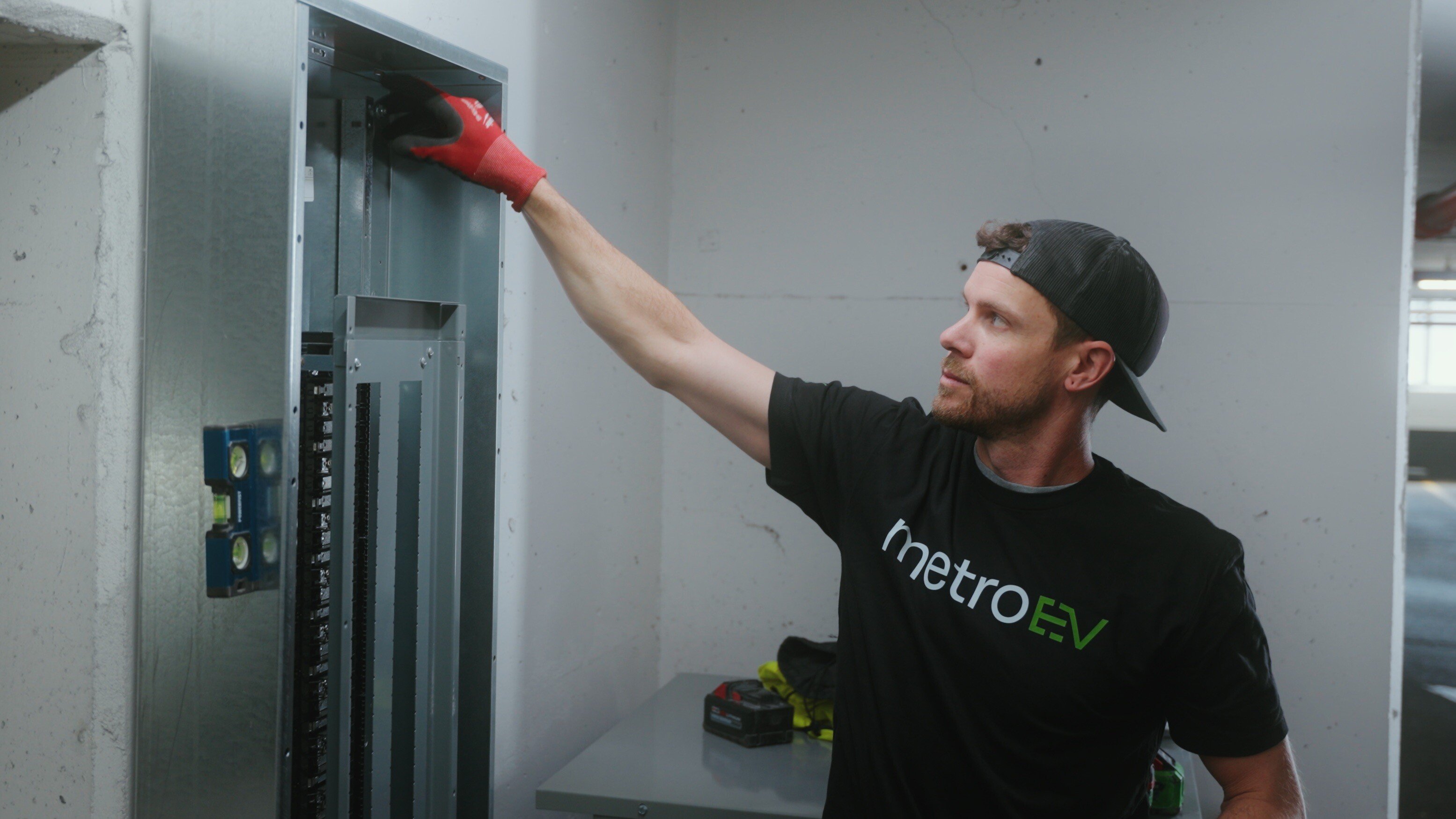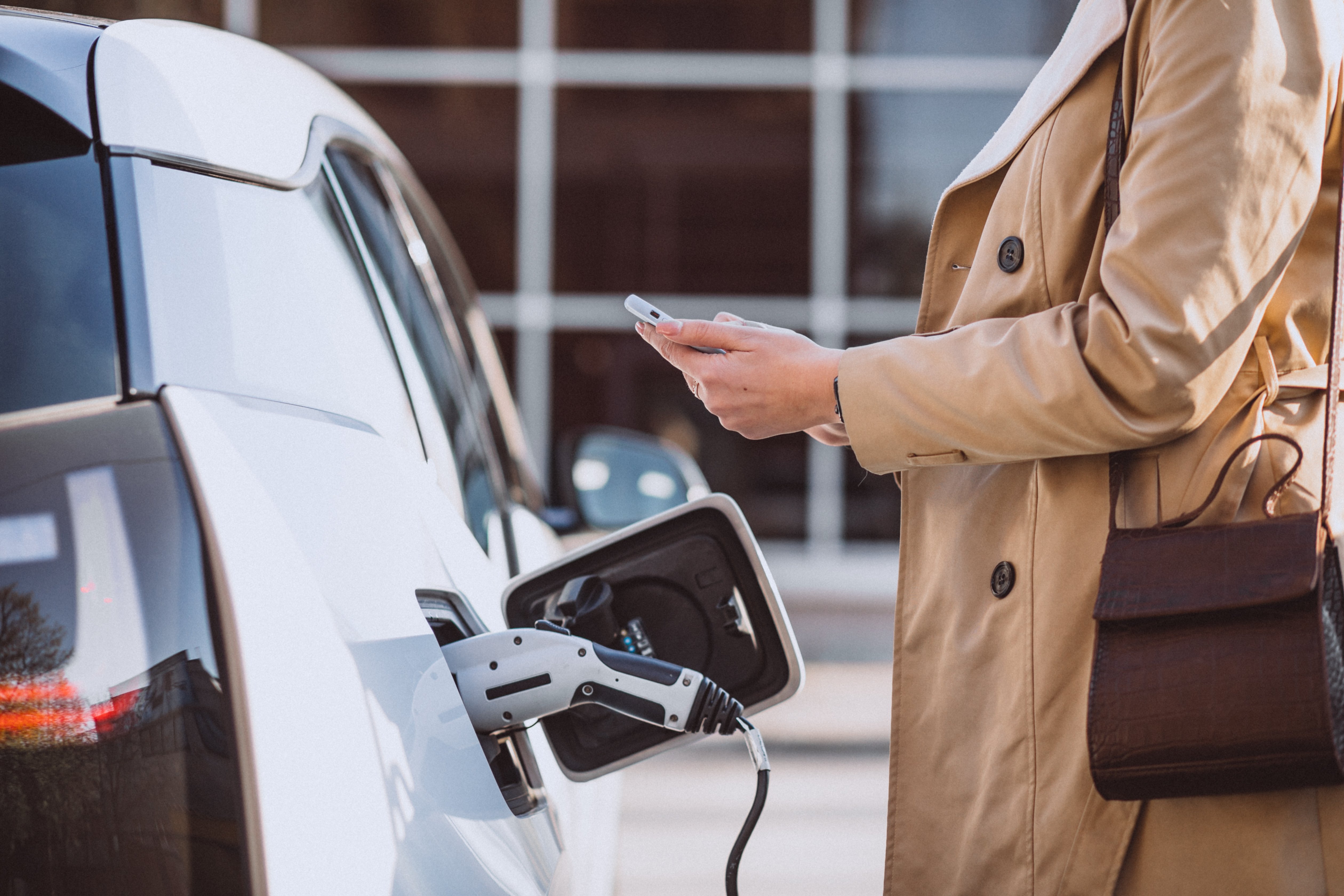With electric vehicles (EVs) becoming more and more mainstream, many are raising questions about the safety of EV charging stations.
One recent example is State Farm Insurance, which recently removed all EV charging stations from its corporate garages, citing fire concerns. But is this fear truly justified?
Let’s break down the facts to understand the real risk of EV charger fires by comparing their likelihood of occurring against other types of vehicles and common household equipment.
Understanding the Fire Risk: EVs vs. Gasoline Vehicles
It's natural to have questions about the safety of any new technology, especially when headlines bring up the risk of fire. However, comparing data on vehicle fires paints a very different picture:
| Type of Vehicle | Annual Fire Incidents per 100k Vehicles |
| Gasoline Vehicles | 1,530 |
| Hybrid Vehicles | 3,474 |
| Electric Vehicles | 25 |
Source: AutoinsuranceEZ, Kelly Blue Book
As shown above, gas-powered vehicles are statistically far more prone to fires than EVs. This disparity is largely due to the nature of gasoline—a highly flammable liquid that ignites easily on impact, posing a significant fire risk during accidents.
Why the Fear? EV Charging Station Safety Features
While there have been a handful of widely publicized cases involving EV battery fires, as noted above, they are exceedingly rare. And even in these rare instances, the cause often ties back to faulty batteries (which occur when charging or not) or improper or outdated infrastructure -- not the inherent design of EV chargers themselves.
In fact, EV charging stations and vehicle batteries are equipped with multiple safety protocols, including:
Overload Protection: Prevents overheating by cutting off power when unusual temperatures are detected.
Ground Fault Circuit Interrupter (GFCI): Shuts down the system if it detects moisture or other faults.
Smart Monitoring: Many modern EV chargers have software that tracks performance in real-time, automatically shutting down if irregularities are detected.
These built-in features significantly reduce fire risk, and by far exceed the safety features of older gas-powered vehicle engines that are still parked in garages across the world everyday.
Related: How to Maintain your EV Charger
EV Charger Fires: EV Chargers vs Other Common Appliances
A study by the National Fire Protection Association (NFPA) found that only a fraction of residential fires involve EV chargers. Let’s compare this to some common household items:
| Item | Annual Fire Incidents per 100,000 Units |
| Kitchen Stoves | 2,300 |
| Clothes Dryers | 600 |
| Space Heaters | 420 |
| EV Charging Stations | 2 |
Source: NFPA’s vehicle fire reports.
This data illustrates that common household appliances are far more likely to cause a fire than an EV charger.
So, Should You Be Concerned About EV Charger Fires?
In light of the facts above, concerns about EV fires are largely unfounded when compared to other fire risks we accept daily, such as gas stoves or traditional vehicles. Modern EVs and charging stations are equipped with comprehensive safety protocols that are designed to prevent fires, making them one of the safer technologies on the road.
The Caveat: Thermal Runway
One consideration that should be mentioned is that in the very instance that an EV battery does catch fire, it is much more difficult to put out than a traditional vehicle.
Electric vehicle (EV) fires present unique challenges for firefighters compared to gasoline vehicle fires. EVs use lithium-ion batteries, which can enter a state called thermal runaway if damaged. This means the battery can continuously release heat and may even reignite hours after it initially appears extinguished. Firefighters often need more water to cool EV batteries compared to the amount typically needed for gasoline fires, and sometimes they must submerge the entire vehicle in water to fully stop the reaction.
However, while these challenges are real, they apply to a very small percentage of incidents. EV fires are rare compared to gasoline fires, making it unlikely for most owners to face this issue. As technology improves, manufacturers are also developing battery management systems that detect and contain thermal runaway, reducing the risk further.
Bottom Line
Electric vehicles and their charging stations are safe, reliable, and backed by extensive safety testing. Fears about EV fires often lack context and rely on a small number of outlier cases. As data continues to show, EVs are less likely to ignite than traditional gas-powered vehicles, and the risk from home EV chargers is comparable to, or even lower than, many everyday appliances.
So next time you see a headline raising concerns about EV fires, remember to look at the bigger picture—one grounded in data, not just speculation.

AUTHOR
Isaac Klein
Isaac Klein, Vice President at metroEV, leads the development and deployment of electric vehicle (EV) charging solutions and EV charger networks. With expertise in sustainable energy and EV technology, Isaac focuses on creating scalable and flexible EV infrastructure that meets the growing market demand. His leadership ensures that metroEV delivers reliable, future-ready EV charger networks that support the transition to electric mobility and clean energy.








